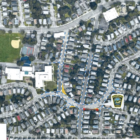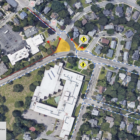Elections
Devaney Wins Race for Governor’s Council & All the Watertown Results from the State Primary
|
Watertown’s Marilyn Petitto Devaney prevailed Tuesday in a tough primary election for the District 3 Governor’s Councilor seat. Devaney will not face a Republican challenger in her bid for a 16th term on the Governor’s Council after defeating challenger Nick Carter of Newton. Devaney received 56 percent of the vote, districtwide, with 95 percent of the precincts counted. There Republicans have no candidate on the ballot for Governor’s Council District 3. Carter, an attorney, ran a well funded campaign and sent out several mailings to voters, while Devaney, a former Watertown Town Councilor, self-funded her campaign.





